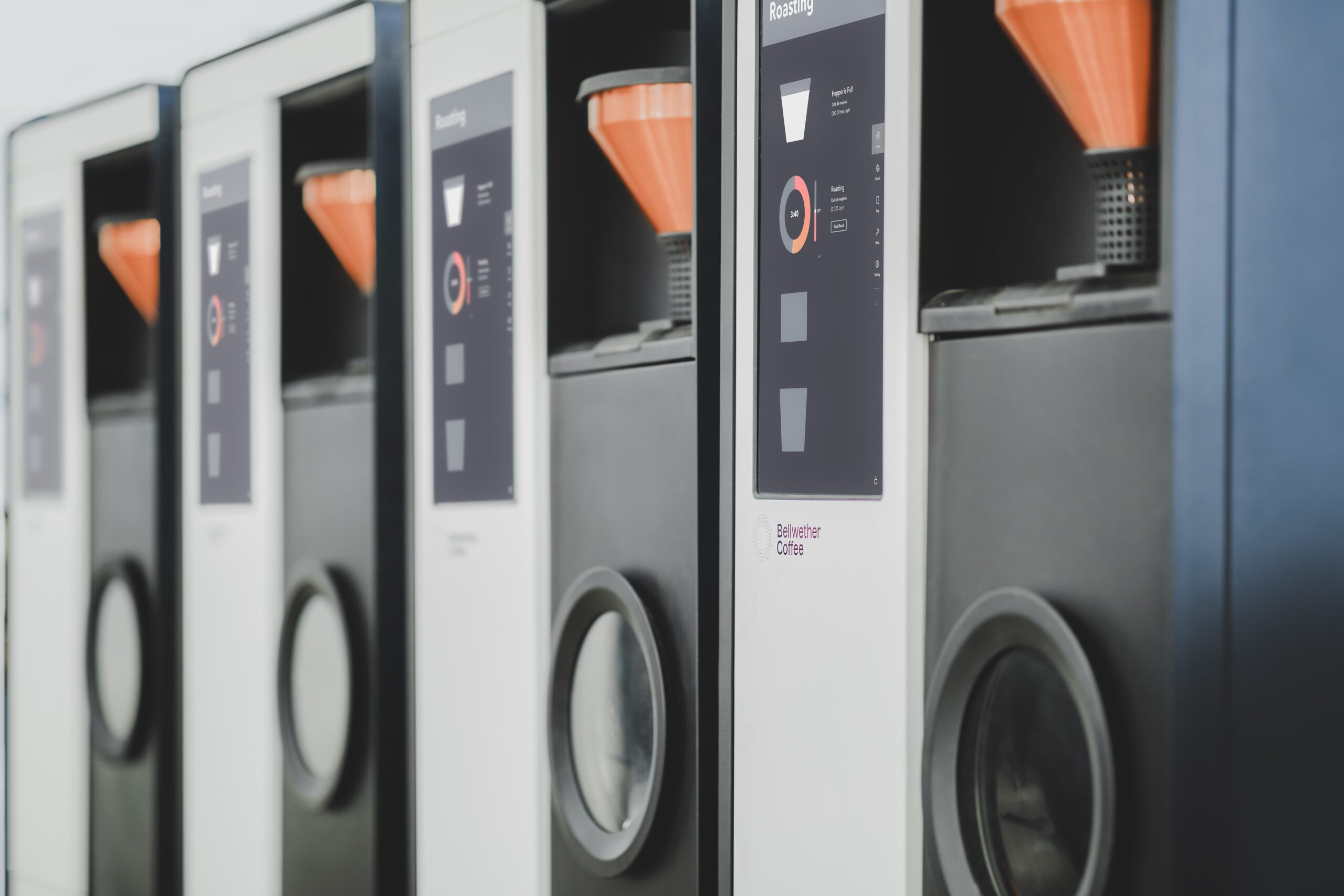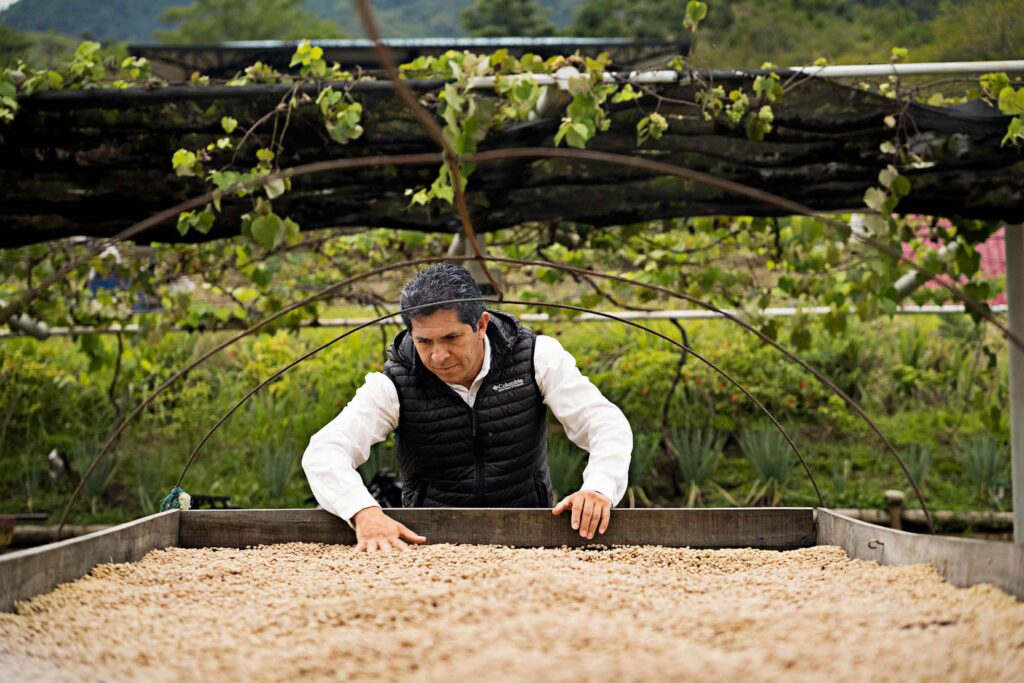
3 Surprising Findings From Our Q2 Benchmarking Report
Each quarter in our benchmarking report, we analyze a broad sample of single origin coffees from hundreds of small roasters …

The coffee supply chain is comprised of many pieces, spanning continents and involving dozens if not hundreds of individuals. As a whole, the supply chain leaves a significant carbon footprint. Its fragmented nature makes it exceptionally difficult to coordinate emission-reduction efforts on a global scale, because no single party has control over the entire supply chain.
In their 2022 Carbon and Coffee report, the Specialty Coffee Association noted that to keep pace with projected global demand for specialty coffee over the next 30 years, the industry will have to at least double current production levels. This expansion in production will have to occur alongside potentially dramatic declines in global yields over the same time period due to deteriorating climate factors. The headwind this produces is that to meet this demand growers may be incentivized to churn out coffee as quickly as possible, abandoning slower methods that are climate-friendly but more costly to maintain.
Various studies have attempted to break down emissions per segment of the coffee supply chain. These figures tend to vary, as different assumptions at any point in the analysis can skew the carbon breakdown toward one component or another.
Some estimates attribute around 30% of total emissions to roasting and transportation. Traditionally, roasting has been a gas-powered activity, releasing significant carbon emissions and volatile organic compounds into the environment. Transportation of coffee can be similarly pollutive, given that all coffee consumed in the continental US travels over air, land or sea to get here. Then there’s additional transportation to the roasting facility and then again out to the final point of sale. This hub-and-spoke distribution network is not necessarily optimized for energy efficiency either. Truckloads may not be full or the routes may not be planned around fuel efficiency.
Bellwether Coffee, based in Berkeley, CA, is addressing both of these segments simultaneously by making electric roasting more accessible to downstream parties, such as cafes and restaurants. Historically, such parties would buy coffee roasted elsewhere, likely via gas-powered equipment and then transported on gas-powered vehicles.
Bellwether’s roasters are 100% electric, ventless, aided by digital roast profiles, and are designed to facilitate decentralized roasting by businesses that could not previously roast coffee in-house. Moreover, Bellwether’s roasters are closed-loop systems that use recirculated air, eliminating the energy inefficient process of constantly heating outside air.
“Bellwether’s all-electric, ventless roaster is a transformative solution that not only decentralizes roasting but reduces the carbon emissions from roasting by 87 percent,” said Grayson Caldwell, Bellwether’s Director of Sustainability and Impact. “Empowering retailers to roast onsite not only streamlines the supply chain, reducing both packaging and transportation, but it also ensures fresher coffee.”
Caldwell says that Bellwether’s fleet of coffee roasters reduced the carbon emissions from roasting by 2.2 million pounds in 2022 alone, the equivalent of keeping a gas-powered vehicle off the road for 2.4 million miles (for more stats see Bellwether’s 2022 Impact Report here).
Bellwether is also impacting other areas of the supply chain as well. By vertically integrating as a green coffee buyer while implementing their Living Income Pricing program, Bellwether aims to provide farmers a livable wage in exchange for their coffee. This, Caldwell says, helps address a difficult reality in the coffee industry: farmers may not otherwise have the resources to engage in farm-level carbon reduction efforts. Bellwether has committed to adopting Living Income Pricing by the end of 2024 for all sourced coffees, Caldwell adds.

In tandem with their pricing program, Bellwether administers the Farmer Impact Fund, a mechanism through which premiums paid on green coffee are distributed directly to the farmers for investments back into their communities.
“This turnkey program allows Bellwether customers to create a direct impact in coffee producing communities – that when investments are made in farming communities, producers reinvest in their land,” said Caldwell.
A vital part of creating a truly sustainable future for coffee is that the definition of sustainability needs to be broad. Not only does coffee have a significant global impact on livelihoods and the environment, but its supply chain is long and opaque. Sustainability is an ecosystem of practices, relationships, investments and innovations that need to touch all segments of the supply chain. After all, carbon-reduction breakthroughs in agricultural or environmental practices will not mean much if the farmers growing the coffee still cannot earn a sustainable living wage.
An important takeaway from Bellwether’s growth is that coffee stakeholders are eager to re-imagine how the industry can operate. We started this post by pointing out the fragmented nature of the supply chain and how that can complicate coordination on issues related to climate resilience and a more equitable value distribution. And yet, we also see a willingness by many stakeholders to try new methods and technologies. We hope to see more of this, as the industry must be aligned on where the coffee market goes from here.

Each quarter in our benchmarking report, we analyze a broad sample of single origin coffees from hundreds of small roasters …

You read tasting notes because they promise an experience. Yet the language on coffee bags often feels repetitive …

You might see organic or fair trade certifications as you look for your next coffee, but bird-friendly brews will be harder to find …